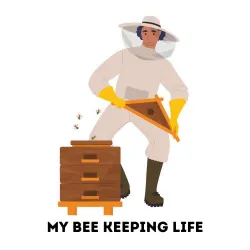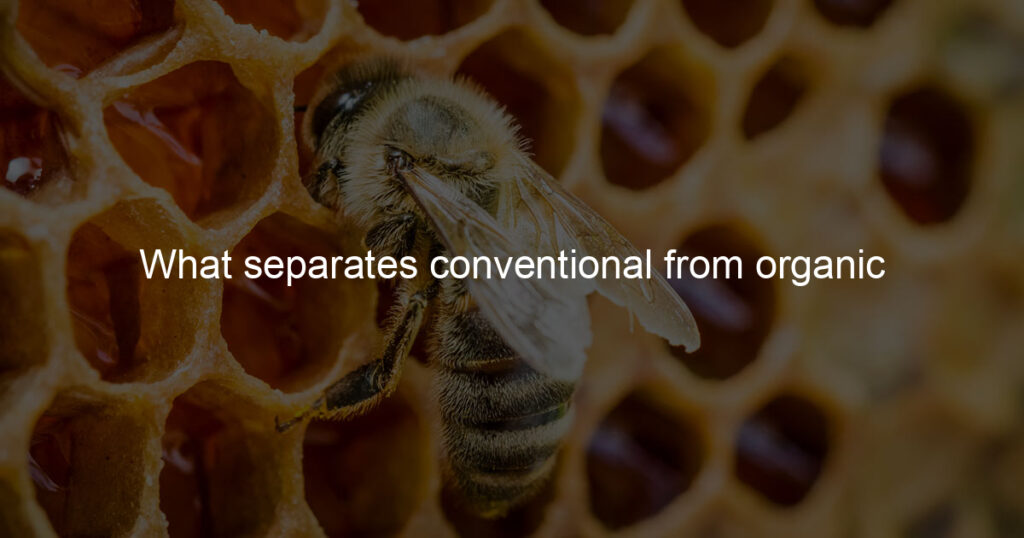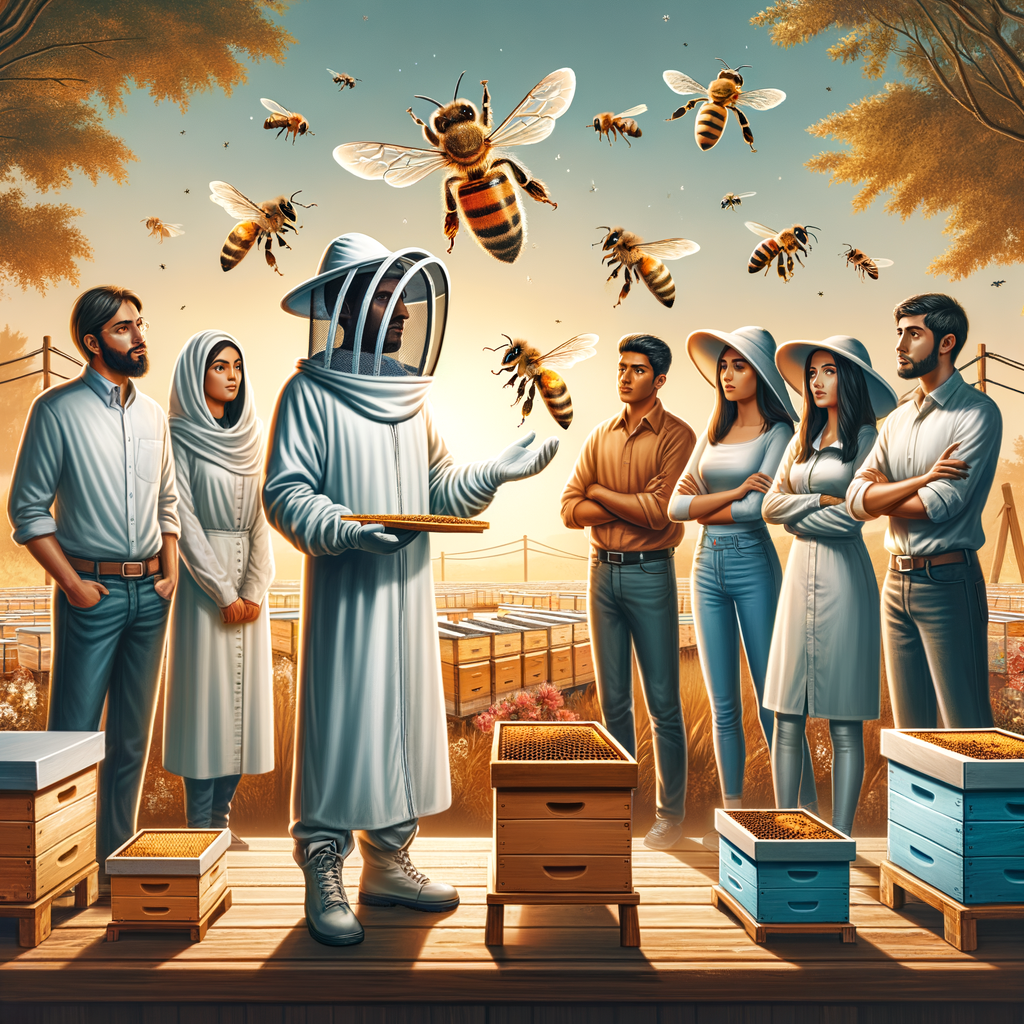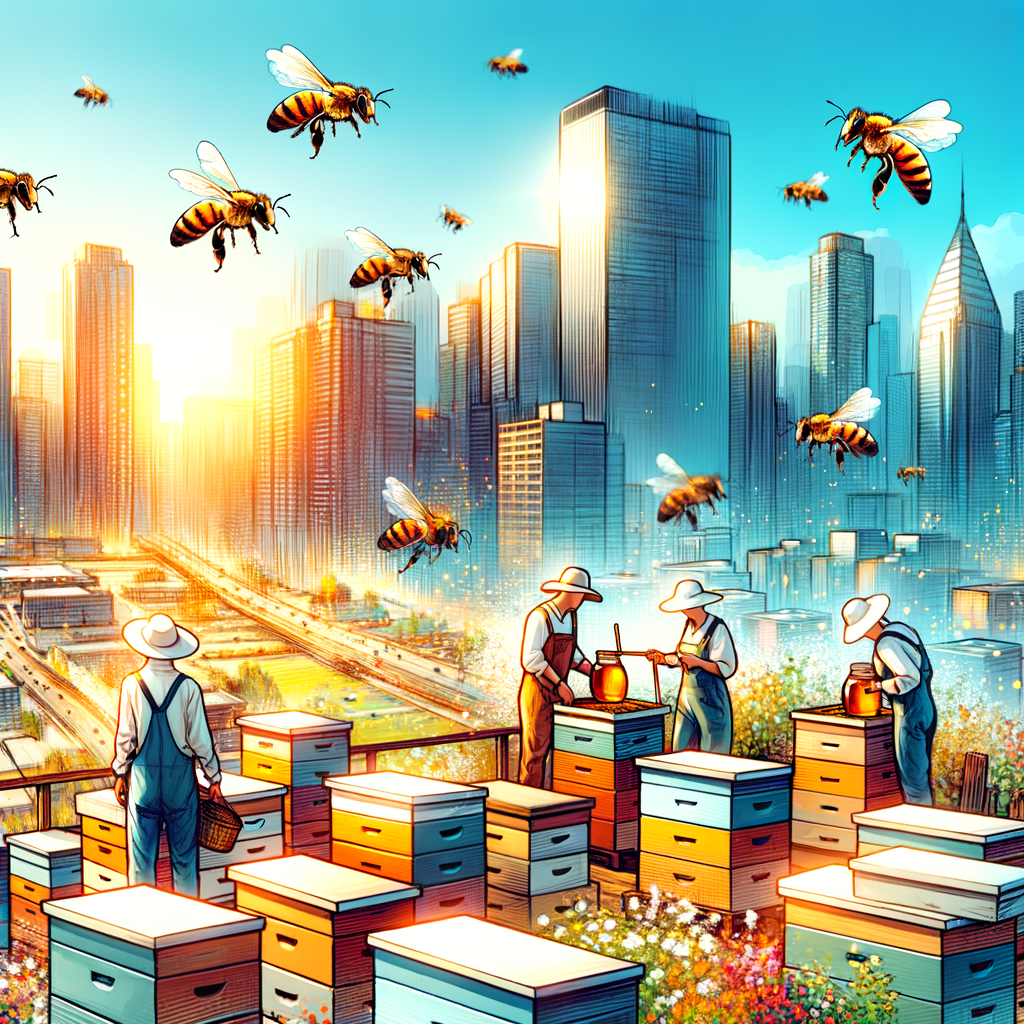Organic beekeeping is a popular and relevant topic today, as more and more people recognize the ecological and financial benefits of sustainable honey production.
Organic beekeeping practices can help slow or even reverse the decline in bee populations, create biodiverse habitats for bees and other beneficial insects, conserve resources to prevent further damage to wild ecosystems, and provide natural pollination services for nearby farms instead of commercial ones – not to mention safeguarding valuable sources of healthful nutrition like raw honey and pollen.
But what does organic beekeeping mean exactly? This blog post will dive into what sets conventional from organic apiculture apart so you’ll have no trouble choosing which style works best for your backyard beehives!
What is conventional beekeeping?
Conventional beekeeping is one of humanity’s oldest agricultural practices, with records of its practice dating back to ancient Egypt. Modern conventional beekeeping is focused on the production of honey and pollination services but it faces numerous challenges which threaten its future.
It involves the use of managed bee hives to collect nectar, wax, and honey from bees collected from wild colonies, as well as carefully managed bred stocks. The goal is both increased production of the hive’s yield, as well as better control over disease and pests. As generations of beekeepers have come and gone, so too has the practice evolved to take into account environmental concerns and provide protection for wild populations. Despite these changes, however, much still needs to be done for sustainable bee-keeping practices to become more widely adopted around the world.
What is organic beekeeping?
Organic beekeeping is a sustainable and natural form of beekeeping that focuses on returning to traditional beekeeping practices. This method uses organic feeds and treatments and encourages the use of indigenous species of bees instead of non-native ones, which tend to be more aggressive.
Reducing or eliminating the use of chemical insecticides, promotes healthy, productive hives while also protecting honeybee populations. In addition, many organic beekeepers are proponents of Top Bar Hives, which resemble traditional boxes used by people all over the world for centuries. Through education, motivation, support, and community involvement, this method of beekeeping works to protect both ecosystems and human communities across the globe.
How do organic beekeepers differ from other beekeepers?
Organic beekeeping is a relatively recent endeavor becoming increasingly more popular among small-scale beekeepers. The differences between organic and traditional beekeepers can be drastically apparent, even to the untrained eye.
Instead of using impenetrable plastic boxes to house their bees during the winter to protect them from mites and cold temperatures, organic beekeepers prefer keeping the colony in a “top bar” hive made from wood or other natural materials. During treatments for disease and pests, organic beekeepers use natural remedies such as herbs, oils, and sugar water instead of harsh chemicals found in many commercial methods.
Additionally, organic beekeepers release fewer queen bees into the wild and keep their sizes smaller to reduce stress on the hive. Organic beekeeping is time-consuming but has been shown to result in strong colonies with high honey yields; it is a healthier environment for not only the bees, but also for those tending them.
What is the difference between traditional and modern beehives?
The traditional beehive is a shelter designed to protect and house bees as they build their colony. It usually has an open-faced structure, often made out of straw or other natural materials, and it requires frequent manual management to keep the hive running smoothly. Modern beehives, on the other hand, tend to consist of closed-faced structures that can be easily moved from place to place. They are constructed from prefabricated materials like wood or plastic and require minimal human intervention due to their automated mechanisms for regulating the temperature and ventilation needed for healthy bee colonies.
Both are commonly used in beekeeping today, but modern designs have allowed for easier relocation and increased colony survival rates through features such as integrated thermostats and insect-resistant wings.
Why are bees important in conventional agriculture?
Bees are an essential piece in the puzzle of modern agriculture. In conventional farming, bees play the important role of pollinating a variety of crops, providing much-needed genetic diversity, and helping to protect against natural diseases.
A single honey bee can visit up to 2,000 flowers a day, carrying pollen that is essential for successful crop production such as apples, avocados, blueberries, and almonds. Without regular visits from bees and other pollinators such as butterflies and birds, fruit and vegetable yields could be drastically reduced or even fail.
In addition to their tremendous contribution to food production, bees also help keep our environment healthy – their busy lives result in cross-pollination which could ultimately provide benefits for wildlife species throughout the world.
Final Thoughts: What separates conventional from organic beekeeping?
Conventional and organic beekeeping is vastly different in the approaches they take to maintaining a healthy hive. Conventional practices rely on treatments like antibiotics and soil management techniques, while organic practices focus on breeding and keeping their bees as close to nature as possible.
Both approaches have pros and cons, but ultimately your individual goals, resources available, and experience with bees can help you choose which approach works best for you. Whichever path is chosen, understanding the differences between conventional and organic beekeeping is essential to becoming a successful beekeeper. The rewards from all forms of beekeeping, both conventional and organic, are abundant when done correctly!








